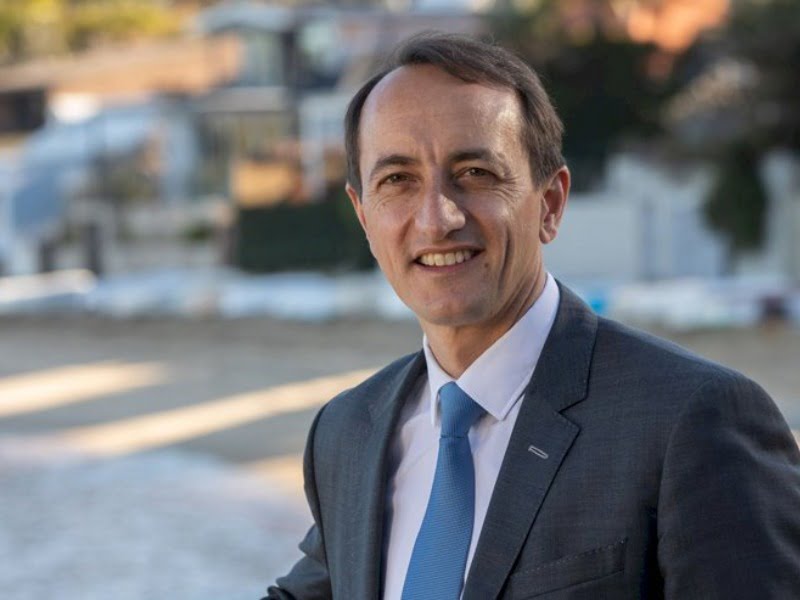Australia can boost its innovation ecosystem by further collaborating with Israel and learning from that country’s successes, according to former ambassador to the nation and government MP Dave Sharma.
In conversation with Israeli Ambassador to Australia Amir Maimon at an online event hosted by the Australia-Israel Chamber of Commerce, Mr Sharma pointed to Israel’s tech success and how Australia can follow in its footsteps.

Israel had the highest venture capital (VC) investment per capita in 2019, and ranks 15th on the global innovation index published by the World Intellectual Property Organisation while Australia ranks 25th. Israel also has the highest per capita level of venture capital investment.
Mr Sharma was the Australian Ambassador to Israel from 2013 to 2017. He said that in the five years since he finished his time as Ambassador, the two countries have greatly increased collaboration on technology, startups, cybersecurity, and clean energy.
“In Australia, the innovation economy, is still in the early stages of development but has come a long way in the last four or five years, a lot of that has been helped or assisted by collaboration with Israeli founders, companies, investors, technology mentors, and entrepreneurs,” Mr Sharma said at the event.
“Israeli technology innovation [in green tech], as we know, is very strong. And its an area that Australia is seeking to position ourselves in more as a clean energy exporter and as a renewable energy exporter.
“I think cybersecurity is again an area where Israel is very advanced because of their own strategic situation and picture and where Australia need to do a lot more and can learn a lot more from Israel in terms of improving our cyber defensive capabilities but also largely speaking our cyber offensive capabilities as well.”
Israel has the second highest level of cybersecurity funding in the world behind the US, making up around 14 per cent of global cybersecurity investment, according to business information provider CrunchBase.
Mr Sharma said that any free trade agreement between the countries should focus on digital commerce, improving the recognition of qualifications and creating more investment pathways. He also said that a deal would have a head-turning effect, drawing Israeli attention to Australian technology opportunities and vice versa.
Although holding off from giving advice to the Australia, Mr Maimon shared what he believed were the most important factors driving Israel’s innovation success. including government investment in R&D, education, a necessity for national security and the culture of self-reliance.
“Israel appreciates the value of its human capital and that’s why Israel is investing a significant amount of money in our people’s ambitions, skills and expertise. Cybersecurity education, for example, starts in middle school in Israel. This makes, I believe, Israel the only country in the world that teaches cybersecurity as an option in high school examinations. In addition to that, I also would like to share that many Israeli universities offer undergraduate specialisation in internet security,” Mr Maimon said.
“Israel, like many other countries, is subject to cyber attacks by Iran, and by some other players. global players, sometimes state state players, and therefore we had to invest in human capital, but not just also in the means to be able to tackle all these attacks.
“Last but not least, I believe that it also related to the way the public in general is perceiving the challenges if people here will feel or in Israel, we felt that…we cannot rely on our neighbours and not on other countries, we need to be responsible for ourselves. And this is also true about technology and the early stages. Nobody was willing to provide us with these more advanced technologies, we had to develop everything by ourselves.”
Mr Sharma added that although it would not be ideal to replicate the geopolitical “existential anxiety” Australia should continue to collaborate and to learn how to build on its early innovation successes.
“There are parts of the Israeli secret sauce if you like that. We can and should be able to replicate is the culture. I think we’re getting better at that in Australia, the idea of entrepreneurship as a career. Working in startups [and] sweat equity…[are] becoming more accepted as a career path in Australia and a lot of young people these days, like to work in the technology industry or are keen to work in a startup. It’s one of these things the more success we have, the more people will see it’s a safe path,” Mr Sharma said.
“The other big part is capital and I think we’re getting better than in Australia. Israel’s got quite a well-established early-stage high risk venture capital industry, with people who are basically at every stage of product development ready to put in money.
“In Australia our VC industry in the finance industry is growing massively…we’re increasingly tapping our biggest sources of capital, particularly our superannuation funds, which are a huge source of deployable capital. Increasingly, they’re getting [invested in startups] in a safe way and in a way that’s prudent for their members. We’ve seen [Australian] innovation funds, Blackbird, AirTree, any number of good VC funds, that have done really well…in [later rounds] of fund raising and more regular investors are looking at having at least part of their portfolio structure towards this.”
Do you know more? Contact James Riley via Email.

